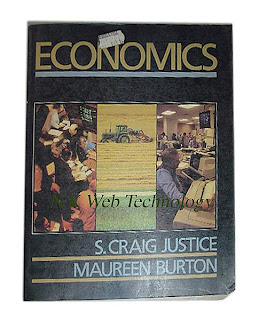 |
| Craig at Chaffey |
Anyway, Chaffey's Faculty Senate has a website, and it lists, among other things, past winners of “Faculty Lecturer of the Year.” The list goes all the way back to 1969, identifying thirty or so lectures. (The lectures ceased during some of the Carter/Reagan years. Hopelessness, I guess.)
The site explains the "Faculty Lecture" honor, revealing it to be impressive and striking:
Faculty Senate elects a Faculty Lecturer for each academic year. In the spring the Faculty Senate seeks nominations … of a colleague to become the Lecturer for the following year. … The individual selected is notified and receives one class reassigned during the upcoming year to research and write a paper and prepare for their lecture/presentation. The paper is published as a journal and distributed at the event. The individual chosen selects his or her own topic for presentation to the campus community.
This event was initiated in 1969 by the Faculty Senate. All campus constituencies are invited and formal invitations to attend are extended to college administrators, members of the Governing Board, and the lecturer's guest list.
Faculty take this award very seriously. To be selected is an honor, carrying with it a significant responsibility. ... Many of our Faculty Lecturers have been interviewed and highlighted in local and regional papers….
This … program … is highly valued on our campus. It draws a capacity crowd every year. ... It shows us at our best. ... We are all, faculty, administrators, and classified caught up in our daily routines and work isolated from one another. This gives the academic community an opportunity to "see" the talent and dedication that usually occurs behind closed doors. We come together to celebrate what it is that we are about.
 |
| Chaffey College of Agriculture, 1885 |
At least given what I see here, this honor and series is indeed impressive. For instance, refreshingly, the lecture titles skew toward the serious and the academic:
- Signals Through the Flames…Resiliency Theory and Chaffey College (Communication Studies)
- Auschwitz and After: Moral Philosophy in the Shadow of Birkenau (Philosophy)
- The Biological Adaptiveness of Lying (Biology)
In recent years, IVC’s Academic Senate has managed to sponsor some serious and academic lectures, including some by our own faculty. That’s a change and a very good one.
Still, Chaffey’s tradition is particularly impressive. Imagine! Granting someone a course release for two consecutive semesters just to write the lecture! That would never happen at IVC—unless, of course, the instructor were an important Republican or a curvy sports figure—or maybe a successful taco entrepreneur. We’d throw money at that hooey all day long. Then we’d bestow certificates or plaques on everybody who had anything remotely to do with it. We’d take lots of pictures. Then we’d display pics and artifacts in a big dumb glass case in BSTIC.
Meanwhile, everything else would go to hell. Maybe the library would fall into itself, leaving a pile of rubble and porn printouts.
Another impressive aspect of Chaffey’s lecture series is the availability of each of the lectures—there’ve been thirty of them—in digital form! The links are right there on the page! All the way back to 1968-9! (“Who’s Listening?”, philosophy)
 |
| Cucamonga, 1884 |
Craig’s lecture was entitled:
Fact, Fantasy, and Faith in Economic Analysis: Is Economics Truly a Science?First of all, let me say that I am impressed—and not at all surprised—that Craig received this honor. My hat’s off to the dismal fellow.
The title of Craig’s lecture is intriguing. Who doesn’t have an opinion about the dismal science and whether its practitioners really have anything to offer? I’d love to read or hear about that. Who wouldn't?
For some reason, however, it is Craig’s and only Craig’s lecture that isn’t available. “No booklet,” it says right there on the page, in black and white among all the brownish red.
I’ve got a theory. Maybe he nailed it and there’s a conspiracy to protect us from the awful truth!
Bring on the full horror, I say! Inquiring minds wanna know!








